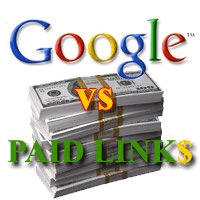 Google really hates link schemes in general. More particularly, it hates paid links schemes. Over the years, the search engine giant battled fiercely with all these kind of linking manipulations and penalized harshly sites that been caught participating in such activities.
Google really hates link schemes in general. More particularly, it hates paid links schemes. Over the years, the search engine giant battled fiercely with all these kind of linking manipulations and penalized harshly sites that been caught participating in such activities.
But now, it seems that Google is switching gear and taking its battle with artificial linking into the next level. But before I’ll go over some of the recent indications about Google’s intention to act more severely against sites involved in link schemes, let’s review the relevant Google’s Webmaster Guidelines.
Webmaster Guidelines: We Despise Link Schemes
On the Link schemes section in the Webmaster Guidelines, Google makes it pretty clear that linking unnaturally it is a violation of the search engine guidelines which can harm the website’s rankings:
This (link schemes) is in violation of Google’s Webmaster Guidelines and can negatively impact your site’s ranking in search results. Examples of link schemes can include:
- Links intended to manipulate PageRank
- Links to web spammers or bad neighborhoods on the web
- Excessive reciprocal links or excessive link exchanging (“Link to me and I’ll link to you.”)
- Buying or selling links that pass PageRank
Google even dedicated a whole Webmaster Guidelines page just for the last example which regarding paid links. Here’s the most important part from the page which basically summarizing it up pretty well:
Buying or selling links that pass PageRank is in violation of Google’s Webmaster Guidelines and can negatively impact a site’s ranking in search results.
So after we have established Google’s loathing towards link schemes, let’s review the signs which pointing that Google is about to act more seriously against them.
Sending Warnings To Webmasters
As initially published by Barry Schwartz in Search Engine Land, Google began sending warnings to webmasters via Google Webmaster Tools whenever the search bots have detected that some unnatural links are linking to the webmaster’s site and the webmaster is being urged to make changes. Here’s a part of a warning notification:
Dear site owner or webmaster of…
We’ve detected that some of your site’s pages may be using techniques that are outside Google’s Webmaster Guidelines.
Specifically, look for possibly artificial or unnatural links pointing to your site that could be intended to manipulate PageRank. Examples of unnatural linking could include buying links to pass PageRank or participating in link schemes.
Go Back As Far As Needed To Remove Paid Links
Barry Schwartz decided to investigate this issue furthermore and found a Google Webmaster Help thread where Google’s webmaster trends analyst, John Mueller, posted a response to one of the people that received a paid links warning notification on his Webmaster Tools account.
Mueller essentially advising the person (or anybody else for that matter) to go back in time as far as possible in order to remove all paid links. If the person already been penalized it doesn’t recommended for him “to wait the penalty out” and after removing all paid links, to send a reconsideration request.
Cracking Down On Paid Blog Networks
If you haven’t heard yet, Google has acted against one of the most popular paid blog networks (selling links from multiple sites) on the web, BuildMyRank, and removed all of the network’s sites from the search index. The blog network had no choice but to shut down completely its whole activity.
Since then, there have been more reports of paid blog networks that were de-indexed by Google and it was even confirmed by Matt Cutts in a Tweet.
Overly SEO Algorithm
The same Matt Cutts revealed about a month ago that Google is about to unleash a new algorithm that will target websites that are doing excessive SEO. As an example for an excessive SEO practice, he specifically mentioned link exchange which is also against Google’s Webmaster Guidelines (as you can see above).
It is a pretty safe to guess that if Google intended to act against excessive link exchange it also intends to act against all kinds of link schemes. I’ll bet that when this overly SEO algorithm will eventually roll out, sites that were involved in link schemes will be severely impacted.
And if you think that Google isn’t serious about it, just remember that it didn’t hesitated to penalize its own product Chrome after a dubious paid links story.